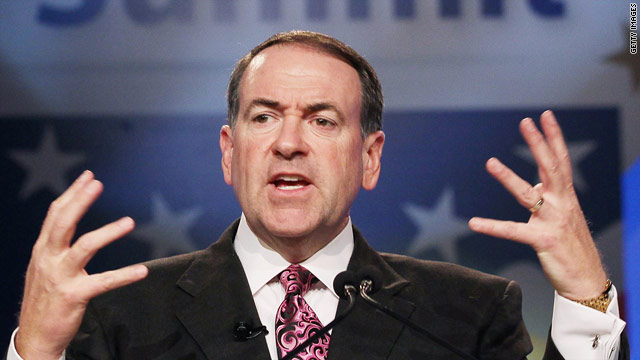When I was on vacation over the past weekend, I was greeted in my hotel with the news that the Supreme Court of the USA overturned individual state laws that banned same sex marriages. After a few moments, Ginny looked and me and essentially asked, "What does this mean?" Her question was loaded. It implied not only what this means for the Church but also what we are to tell our children.

I was not surprised by this ruling. I think that the writing was on the wall a long time ago. Furthermore, I am currently (but hesitantly) not worried for the Church, so long as the Federal Government does not begin to mandate that the Church has to perform same sex marriages. Indeed, there are those who say, "Well...look at the slippery slope that we are on!" I have never been one for the slippery slope arguments, and such a scenario would constitute perhaps the grossest violation of the separation of Church and state. However, what is interesting about this situation is that this ruling has, in my mind, undermined a fundamental principle of the Constitution--the place for states rights to exist in cooperation with federal stipulations. In this ruling, the Supreme Court effectively said, "To hell with the laws of individual states. You shall assimilate." So, maybe we are on that slippery slop...only time will tell though.
Nevertheless, this ruling has thrust into the forefront...again...the importance of this issue for the American Church. Furthermore, and make no mistake, for those denominations that have been ducking this issue, they can no longer. Each tradition and church will now
have to make a statement...go on the record if you will. However, how do will the Church do this? What has not been said already?
For example, advocates of the LGBT community have long stated something to the effect that "Jesus preached love and acceptance. Come as you are. Who are you to judge?" In response, Evangelicals have often been quick to point that such an acceptance is not technically absolute. In turn, Evangelicals trumpet, "Sure, come as you are...but know that you MUST change." To this, the advocates of the LGBT community chastise Evangelicals for being selective in the sins that they target. "Sin is sin," they often say, "and to single out types of sin at the expense of others is wrong." The stickiness of the situation is that both sides are partially correct.
Another angle that is often taken is that the Bible makes clear-cut, unequivocal statements, on the immorality of the homosexual lifestyle. Paul, Leviticus, and others are very clear that said lifestyle is an "abomination" and a violation of the intended order. In response, advocates of the LGBT community often suggest that the Bible, with its clear denouncements, is a culturally restricted document, and its statements have little to no relevance in today's society. For example, I heard a paper once where the presenter said that the Bible's statements on homosexuality are only descriptive and have no prescriptive dynamic, particularly since it does not address the host of dynamics that characterize the modern lifestyle. In other words, contemporary society has progressed beyond the scope of the biblical commentary. The result is, unfortunately, that there is no place to even start the conversation between advocate of the LGBT community and the majority of the Evangelical community.
A friend of mine has recently mused on this issue, and you can find it
here. In this posting he mentions that in his experience he realized that the issue of identity is at stake, not merely "dos and don'ts." Members of the LGBT community have their identity tied up in their lifestyle. So, when Evangelicals say, "Sure come...but CHANGE," we are asking them to change how they perceive themselves, how they identify themselves, how they define themselves. It cuts to the core of who they are. This is a hard truth to learn for Evangelicals. The issue is complicated, more nuanced, than we often realize.
The issue at stake is not merely, "Well do you take the Bible seriously or not?" Or, "Why do you have to be such a literalist?" No, at the heart of this issue is the convergence of lifestyles, individual identity, and communal identity. So, perhaps one can begin from the standpoint of identity, particularly the intersection of individual identity with corporate identity. There are at least two places in the history of God's people that manifest the convergence of lifestyle, individual identity, and communal identity. The first is when Israel first settled into Canaan, and the other is when the early Church wrestled with the implications of Gentile inclusion at the Jerusalem Council.

- In the book of Joshua we read about a covenantal renewal ceremony on Mt. Ebal (cf. 8:30-35). In that text, we are told that foreigners accompanied native born Israelites, women, and children in this public proclamation of living in accord with a covenant. This principle is reiterated again in chapters 23-24, but there is an additional sense of urgency that individual actions must be line quickly with community's ethos. So we see that the boundaries of the community are porous, but within those boundaries it is not a free-for-all. The members of the community are to "put away their foreign gods" and "serve the Lord." The vitality of the community, and thus its identity, depends on it.
- In Acts 15, we read about the Jerusalem Council, which was devoted to hammering out the place of Jewish traditions for the Early Church. One the one hand, there were traditionalists who were advocating for the customs of old. On the other hand, there were progressive elements who did not see the applicability of certain customs in light of new revelations. Something had to give and the council decided to yield so far as mutual respect was shown.
So what can we learn from these quick episodes? First, there is an lifestyle expectation for those members within the community of God. As I say, the community of God is simultaneously inclusive and exclusive. It calls everyone to join, it bars no one, but there is a lifestyle expectation placed upon its members. This is incontrovertible. However, this is not to say that the community is "stuck in the past." The Jerusalem Council shows that there is some freedom to be exercised with respect to the community's expectations on lifestyle.
So where does these leave the LGBT community? Does the flexibility alluded to by the Jerusalem council extend to the homosexual lifestyle? Should the Church accommodate, and thereby sanction, this lifestyle under the guise of progressive enlightenment? In my opinion, it cannot. As I mentioned above, the statements made in multiple contexts, across the testaments are resoundingly clear. But to sum up Paul, perhaps the most famous recipient of progressive revelation (i.e. the inclusion of the Gentiles), the homosexual lifestyle is a perversion of the intended order.

Returning to the issue of identity. Upon inclusion into God's community, individual identities are checked against external criteria. Individual identities, with all of their manifestations and characteristics, must yield and be transformed where necessary. As for the canon of that transformation, it is found in Christ and, by implication, Scripture. Consequently, when a Christian responds to the suggestion that a particular lifestyle misses the mark with the rationalization that it is a part of who they are, I understand them, for it is hard to admit that who we are falls short. Nevertheless, I am ultimately not satisfied. The Christian community is not about you or me and how we think we should identify ourselves. It is about God seeking to transform you in his likeness and embracing his identity for you.
 Recently, the governor elect of Kentucky went on record
saying that he opposes the relatively uncontrolled resettlement of Syrian refugees.
This of course was stated in response to the news that one of the people
responsible for the terrorist attack in France over the weekend posed as a
Syrian refugee. Bevin’s statement was countered by the sitting governor
who stated something to the effect that the “Christian thing to do” is to
accept the resettlement of Syrian refugees.
Recently, the governor elect of Kentucky went on record
saying that he opposes the relatively uncontrolled resettlement of Syrian refugees.
This of course was stated in response to the news that one of the people
responsible for the terrorist attack in France over the weekend posed as a
Syrian refugee. Bevin’s statement was countered by the sitting governor
who stated something to the effect that the “Christian thing to do” is to
accept the resettlement of Syrian refugees. 






